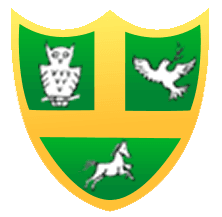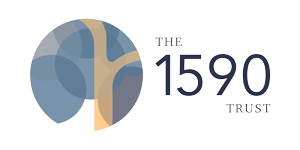Science
Article 28: Every child has the right to an education
Intent: What we are trying to achieve in our curriculum?
Our curriculum is designed to meet and address the needs of the children who attend our school. It is ambitious, inclusive, broad and balanced. It is designed to provide a progression of knowledge, skills and vocabulary with clear end points, at the end of key phases in school. Assessment is used effectively to adapt the curriculum to the individual needs of the children. The threads, ‘Be ready, Be Respectful and Be Safe,’ provide the intent of our curriculum design and are implemented throughout each subject.
What do we want to develop in our children at Kirklevington? |
What does this look like in our School? |
Be Ready |
Be Ambitious – aim high, exposure to experts and role models, challenge provided in teaching knowledge, skills and vocabulary |
- At Kirklevington Primary School, our Science curriculum has been carefully planned to foster children’s natural curiosity and excitement about Science whilst providing full coverage of the National Curriculum.
- Throughout their time at school, they learn about influential scientists, which helps them to understand how a diverse group of scientists have improved life for those around them, through scientific discoveries and ideas.
- We hope to foster a love of science as the children progress through school, developing their skills, knowledge and understanding.
- Children have access to key language and meanings in order to understand and readily apply to their written, mathematical and verbal communication of their skills.
- Key vocabulary is reinforced and modelled by the class teacher, with the expectation that children use it themselves with confidence.
- Children will use a wide and varied range of resources to develop their knowledge and understanding that is integral to their learning and develop their understanding of working scientifically.
|
|
Be Independent – Prepared for now, the next steps and for life |
- By the time children leave our school, it is our intent to ensure they have extensive scientific knowledge and skills to thrive when they move onto secondary school and into their adult life.
- Children have opportunities to meet and work with ‘real life’ scientists during our programme of study. They have chance to do this at school, and during external visits or school trips.
- It is our aim to ensure that children learn to question things in all aspects of life and have the confidence, knowledge and skills to find out the answers.
- We have a clear and comprehensive scheme of work, in line with the National Curriculum, where teaching and learning shows opportunities for exciting, practical, and investigative lessons.
- Children will reflect on previous learning and cross-curricular links will be made wherever possible. They will be able to build on prior knowledge and link ideas together, enabling them to question and become enquiry-based learners.
- Attainment is assessed each half term through related topic assessment tasks and, where applicable, links to Science will be made to develop the children’s topical learning.
|
|
Be Resilient – confident, develop self-regulation, well-being strategies and be problem solvers |
- We provide a curriculum, which develops children’s resilience, independence and self-esteem, by providing plenty of opportunities for them to apply their scientific skills and knowledge during open-ended investigations.
- We create an emphasis on children evaluating their own work and ‘having another go’, to ensure they have the appropriate skillset to be successful and to try again when they are not.
|
|
Be Respectful |
Respectful behaviours – towards ourselves, our peers and others |
- They will work collaboratively and practically to investigate and experiment, developing team work and skills of cooperation and resilience.
- Children learn to listen to others’ ideas and reflect upon these to develop their own knowledge and understanding of the skills that are being taught.
- Children are taught to respect others, even when they are different from them or may make different choices or have different personal beliefs.
|
|
Respect rights -RRSA – Understand our rights, how they affect our lives and rights of children globally, celebrating differences |
- Children learn about how science contributes to the wider world and understand the global factors involved in the development of scientific knowledge.
- Children learn that not every country has access to the same resources in order to develop scientific study at the same pace.
- Pupils understanding that they have a voice and are encouraged to be global citizens as they learn about scientific concepts and discoveries.
|
|
Respect the environment – our school, the community and the wider world |
- Children will retain knowledge that is pertinent to Science with a real life context.
- They learn about how scientific knowledge and enquiry links to issues that affect them personally, and the wider world.
|
|
Be Safe |
Keep ourselves safe – know how to report concerns and worries, including with friendships |
- Our aim is for children to feel safe and confident to share their scientific ideas during science lessons.
- Children learn to think with an open mind and use a variety of techniques to discover new ideas. This is modelled to the children within STEM lessons.
- In KS2, elements of our RSE curriculum are linked with our science curriculum and this is taught sensitively and our teaching materials are age-appropriate.
|
|
Being safe in the school and community – Knowledge about, our families, the school, the local context and wider world |
- Children learn about STEM occupations and how they fit into the wider world.
- They learn about the developments in Science, Technology, Engineering and Maths and how they have contributed to development in a local context, and within the wider world.
- Children have the opportunity to meet people who work in STEM so they can observe their contributions in a real-life context.
|
|
Being safe online –Using technology for the right reasons and knowing its limitations |
- Children use technology safely to access games and apps to support their learning, both at home and in school.
- Children assess the impact of using technology in science.
- Children learn about what sorts of boundaries are appropriate in friendships with peers and others (including in a digital context).
|
Implementation
We have a clear and comprehensive scheme of work in line with the National Curriculum where teaching and learning shows progression across all years and all key stages within the strands of Science. Children have access to key language and meanings in order to understand and readily apply to their written, mathematical and verbal communication of their skills. Key vocabulary is reinforced and modelled by the class teacher, with the expectation that children use it themselves with confidence. Children will use a wide and varied range of resources to develop their knowledge and understanding that is integral to their learning and develop their understanding of working scientifically.
We have a clear and comprehensive scheme of work in line with the National Curriculum where teaching and learning shows opportunities for exciting practical investigative lessons within Science. Children will reflect on previous learning and cross curricular links will be made wherever possible. They will be able to build on prior knowledge and link ideas together, enabling them to question and become enquiry based learners. Attainment will be assessed each half term through related topic assessment tasks and, where applicable, links to Science will be made to develop the children’s topical learning.
Impact
Most children will achieve age related expectations in Science at the end of their cohort year. Children will retain knowledge that is pertinent to Science with a real life context. They will be able to question ideas and reflect on knowledge. They will work collaboratively and practically to investigate and experiment, developing team work and skills of cooperation and resilience. Children will be able to explain the process they have taken and be able to reason scientifically with confidence.

